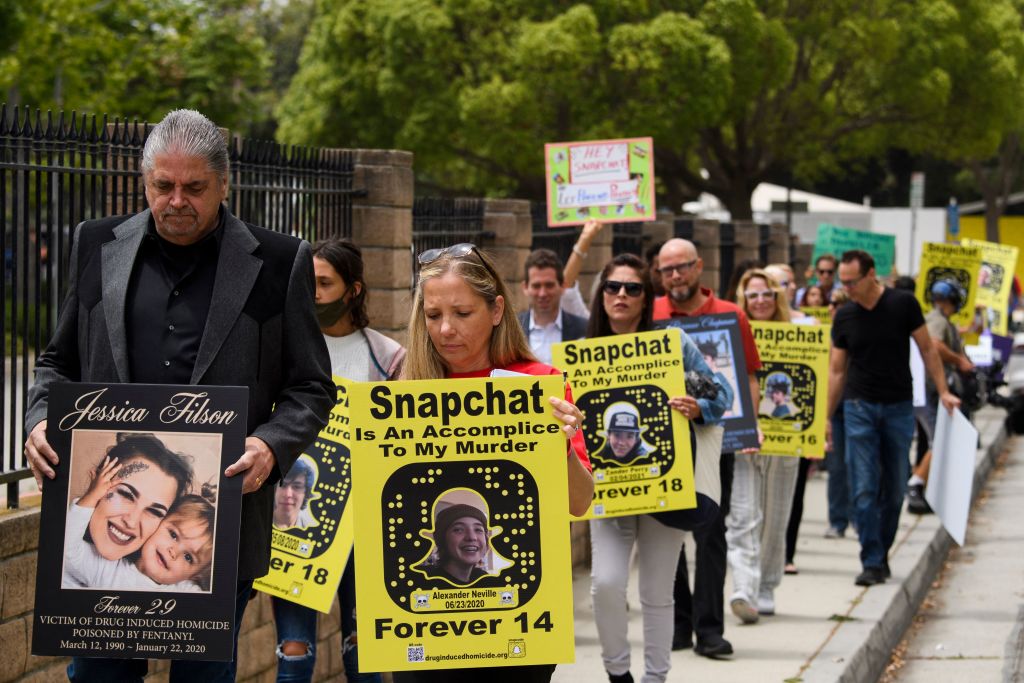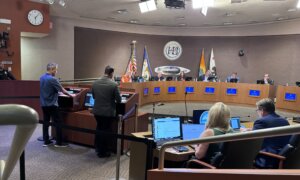Dozens of families who lost loved ones to fentanyl overdoses are suing social media platform Snapchat, saying fatal drugs were being distributed through the platform.
A Los Angeles judge denied Jan. 3 Snapchat’s parent company Snap Inc.’s motion to dismiss the case. The lawsuit was filed in October 2022 and extended in April 2023, when more than 60 families joined the case with similar allegations.
Los Angeles Superior Court Judge Lawrence P. Riff dismissed the company’s objections to 12 claims in the suit, which alleged negligence, defective product, misrepresentation, and wrongful death.
However, the judge also dismissed four other allegations made against the company in the complaint, including claims that Snapchat had interfered with parental rights, caused a public nuisance, and aided and abetted drug dealers.
The extended version of the complaint filed also alleges that the app’s temporary message function—in which messages disappear shortly after they’re sent—can perpetuate illegal conduct by allowing users to obscure their actions.
However, Snapchat denies these claims, saying they’re not responsible for what their users do on the platform.
“While we are committed to advancing our efforts to stop drug dealers from engaging in illegal activity on Snapchat,” a Snapchat spokesperson told local news outlet Fox LA, “we believe the plaintiffs’ allegations are both legally and factually flawed and will continue to defend that position in court.”
Amid the lawsuit’s proceedings, Gov. Gavin Newsom signed a bill into law in October that allows individuals to seek court orders requiring social media companies to remove posts related to illegal drug activity.
Senate Bill 60, which went into effect Jan. 1, provides legal authority for a court to order posts removed containing offers to administer, furnish, give away, import, sell, or transport any controlled substances regulated by California law.














